Let’s get this out of the way before addressing anything else: Torrenting is legal, generally. By definition, torrenting just means that you’re using a torrent client to download a file from a swarm of people who may already have part or all of that file. The only problem with torrenting is that, for the vast majority of the time, people are sharing copyrighted content. That, depending on the country you live in, can be a big problem.
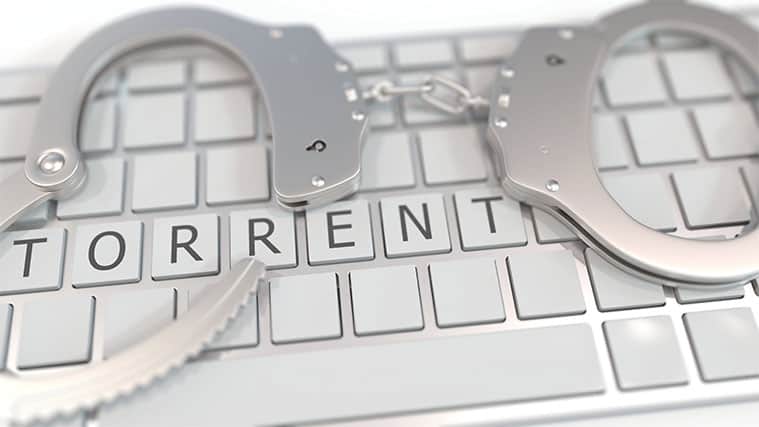
Whether or not you use torrent software, clients or websites to download and share copyrighted content on the internet is immaterial, as such activity will always be illegal. So, individual torrent users and torrent site operators have to tread very carefully to avoid legal issues and crackdowns from law enforcement.
Some countries don’t even entertain complaints against torrenters from copyright groups, while others will let you off with a warning. Some might force you to pay a fine and even fewer may send you to prison. Again, you are free to use torrents all you want if the content you are downloading or uploading is legal. If it is not and you share copyrighted content with lots of other people, law enforcement agencies can charge you with piracy.
With that out of the way, we recommend that you always try to give due consideration to the copyright holders and producers of the content you like. And you should never download or distribute copyrighted material from the internet (via any file-sharing protocol or other sources) without prior permission from the creator, distributor or entity that has the rights reserved to that content.
Let’s take a look at how different countries deal with torrenting:
| List of Countries Where Illegal Torrenting Is Safe | List of Countries That Fine Illegal Torrenting | List of Countries That Have Banned File-Sharing Torrent Sites |
|---|---|---|
| Netherlands | Switzerland | Latvia |
| Mexico | Spain | South Africa |
| Israel | Germany | Russia |
| Canada | Poland | Malaysia |
| Romania | Japan | Italy |
| Greece | United Kingdom | Australia |
| Uruguay | United Arab Emirates | United States |
| Slovakia | France | Sweden |
| Czech Republic | Finland | China |
| Slovenia | Portugal | |
| Brazil | ||
| Columbia | ||
| Philippines | ||
| Iran | ||
| Argentina | ||
| Egypt | ||
| Singapore | ||
| Denmark |
Table of Contents
Is Downloading Movies Illegal for Personal Use?

As mentioned, downloading movies from the internet via peer-to-peer (P2P) technologies such as torrenting is not illegal. However, downloading copyrighted movies for personal or commercial use is illegal.
Additionally, because of the great amount of content you can find on the internet for free, it is sometimes hard to discern if the content you are about to download is copyrighted or not. This means that you may not always have a clear idea of whether torrenting something is legal or illegal—and, truth be told, sometimes you will download copyrighted material without ever knowing about it.
To avoid ending up on the wrong side of the law unwittingly, a growing number of people (not just torrent users) are turning to virtual private network (VPN) services to hide their activity and conceal their identity.
However, it’s worth mentioning that you don’t have to actually download copyrighted material on the internet via torrenting to get on the wrong side of the law. The simple act of uploading or sharing such material can be enough for law enforcement authorities to take notice and catch you. With that said, we should mention that it is completely legal to torrent material that does not have copyright protections placed on it.
There are no restrictions on downloading, uploading or sharing legal content that is not copyrighted.
At the end of the day, it doesn’t really matter if you are downloading a torrent file for personal or commercial use. If a movie is copyrighted, downloading it even for personal use is illegal.
How Do Authorities Know If Users Are Torrenting?
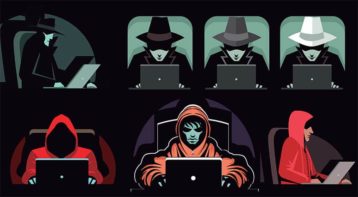
Now, whether or not you will get caught torrenting is an entirely different matter. For example, if you live in a country like the U.S., you should know that internet service providers (ISPs) and government departments collaborate regularly to catch people who download and share copyrighted material on the internet. However, the vast majority of their efforts go towards catching distributors of copyrighted materials and not actual downloaders of the material.
It is true that ISPs are less interested in searching for and catching torrent users. They are running a business, and their sole focus is to increase their profits. But in a country like the U.S., government authorities and the courts can use subpoenas to coerce your ISP into handing over personal information about a customer who authorities believe is distributing copyrighted material on the internet without prior permission from producers.
Warning:
There is a chance that if you are torrenting copyrighted material, authorities will get to you after receiving your personal information from your ISP.How Can You Get Caught Torrenting?
We’ll address this question in more detail in the coming sections. For now, just keep in mind that you downloading content through torrenting can not only have consequences for you but also for your ISP. Government agencies around the world have banned torrent websites by forcing internet service providers to stop providing access to them.
Of course, savvy online users can simply sign up for a VPN to unblock any website that their internet service provider or government agency may have blocked.
When you torrent copyrighted material from the internet, knowingly or unknowingly, your ISP/court/government can catch you. Whether or not they will is another question we’ll leave for later.
Ultimately, if you don’t take any measures to protect your online privacy and you still engage in distributing copyrighted material, it will become fairly easy for your ISP and government to not only record the activity but also catch you.
Can ISPs Block Torrenters? Is That Legal or Illegal?
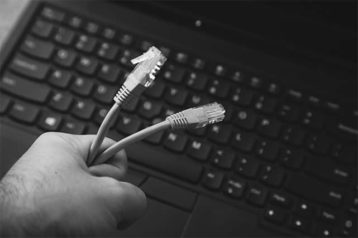
Without a doubt, your internet service provider has the tools necessary to monitor its customers and what they do on the internet. More specifically, your ISP can know if you have shared a file on the internet and can use your IP address to identify you and connect your activity with your computer/device to make a case. You may also find it surprising that the torrent software that you use to download files from torrenting sites also stores the IP addresses of all leechers (downloaders) and seeders (uploaders) in a given swarm.
So, an unscrupulous enough ISP doesn’t even need to monitor all of its users to see which are engaging in illegal torrenting. All it has to do is keep an eye on a torrent file that is likely to be downloaded by a lot of torrent users. And since it has access to your IP address already, the ISP can see that you downloaded the torrent file it was monitoring.
Note:
Without the necessary precautions, you should consider torrenting illegal since ISPs only need your IP address to see if you’re downloading something that it deems worthy of copyright infringement.Your ISP can use your IP address to know your precise location as well. From there, it shouldn’t be hard for you to imagine law enforcement agencies breaking into your house, seizing your equipment and investigating your actions.
What Is the Punishment for Torrenting?
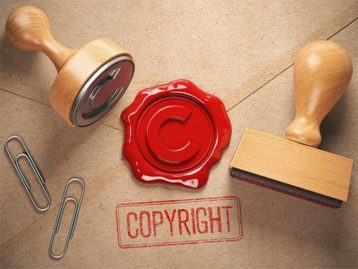
Before we discuss the potential punishments for torrenting, we first want to give some space to copyright trolls. They are an important factor when talking about punishment for torrenting and copyright infringement. Copyright trolls come in various shapes and forms: Some are just individuals looking to make a living; others include companies doing business by getting rid of pirates.
Now, if you are someone who uses torrent software or torrent clients to download files solely for your own personal use, you probably won’t be getting a visit from copyright trolls even though what you may be doing is illegal. But if you’re distributing copyrighted material via torrenting sites, copyright trolls will make an effort to track down your IP address and come after you.
The way they go about it is simple enough. Once they have the required IP address, they determine the location of the pirate and then get a document from the copyright holders to approve taking legal action against the distributor of the pirated content. From there, it is all a matter of the court listening to the case and giving a judgment in due time. It’s not hard to see if their model works since many big-budget Hollywood production companies hire these copyright troll companies to track down pirates who are distributing their content without permission.
These are warning messages or emails that copyright-holding groups send to people who they have identified as copyright infringers. Such threat-based tactics can sometimes work and save these companies a lot of work.
Punishment From ISPs and Copyright Groups
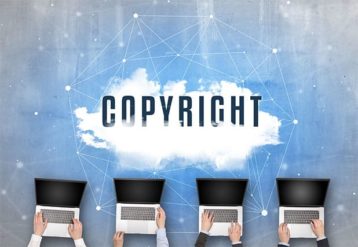
So, what kind of punishment can you expect for torrenting copyrighted material? As mentioned, it depends on the strategy of the copyright groups that are active in your country/region. Oftentimes, if you were to get caught, copyright trolls will contact your ISP and force them to inform you of the consequences of your activities. Moreover, depending on the type and amount of downloading you have done, your ISP may go the settlement route and ask you to pay a fine.
Sometimes things can get worse. The copyright troll looking to come after you may contact your ISP, get your IP address and then threaten you with a lawsuit and huge sums of money as compensation. Once it sees that you (the downloader) are ready to talk, it may or may not settle for a fraction of the amount it wanted earlier.
This is where you need to learn that, legally, you are under no obligation to pay any copyright troll any amount of money.
Copyright trolls know that and hence look for those who will pay under pressure. And there are always people who will break down under a threatening letter and accept some kind of settlement. As far as the copyright troll is concerned, getting to a settlement as quickly as possible is the way to higher profits, which is why they’re most often interested in a settlement. They don’t want to go through the trouble of spending time and resources in a lengthy court battle.
So as a downloader, your aim should be to not give much attention to the first copyright troll email or message. Wait until the copyright escalates the situation and threatens with court proceedings and a heavy fine.
Most western legal systems are comprehensive enough to make a distinction between people who are routinely engaged in illegal torrenting vs. people who only occasionally download one or two files from torrent websites. In other words, distributing copyrighted material is something that will get you in legal trouble sooner or later. Downloading files might not land you in a legal battle, depending on where you live.
ISPs are also changing their behavior towards people who download torrents illegally. Now, there is a possibility of the torrenter receiving a small fine from their ISP. Sometimes torrenting illegal material may not result in a monetary fine—instead, your ISP could just decrease the speed of your internet connection. For the more stubborn of torrenters, ISPs can threaten to hand their personal information to copyright trolls and/or law enforcement authorities. That is more than enough to deter the vast majority of online torrenters from continuing their activities.
How Dangerous Is Torrenting?
Torrenting is as dangerous or safe as you want it to be. If you are torrenting to download freely available material on the internet that is not copyrighted and/or is in the public domain, then you don’t have anything to worry about. However, if you intentionally download copyrighted material from some of the more known sources of torrent files, then that is as dangerous as torrenting can get. As explained above, copyright trolls and your ISP can punish you if they want to.Sometimes you will be torrenting content that you don’t know is copyrighted. In those cases too, you are not totally safe.
Can You Go To Jail for Torrenting?
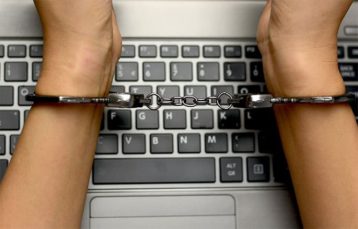
Fundamentally, torrent is nothing but a file-sharing protocol for transferring files. People torrent because torrenting simplifies the process of moving files from one computer to another. You only get into legal trouble when you download licensed content (obviously without a license) via torrenting. In very rare cases, you can get jail time for torrenting copyrighted material.
For example, let’s say you go to one of the many popular torrent websites and download movies, TV series, video games, applications and documentaries for free. Now, if all of that content is not in the public domain or a streaming site has bought the license to that content (which you can only view via subscription fee). In this case, you are practically stealing that content.
Note:
Torrenting copyrighted material is illegal. It doesn’t matter if you download copyrighted material via torrenting, HTTP, or FTP. The file protocol you use for file-sharing does not matter—the content does.So, what are the chances that copyright trolls will come after you and put you behind bars?
Not likely. It is also hard for copyright trolls or anyone else to find the origin of the file on your computer. Just because a file is on your laptop does not mean you got it from an illegal source. Only you know the origin of the torrent file with certainty.
To further clarify that point, imagine you’ve stored tens of movies and TV series that you ripped straight from DVDs that you paid for and own. You can travel with them all you want and no law enforcement agency in the world would be able to say that you stole them just because you have them on your hard disk and don’t have a subscription package to something like Netflix and/or Amazon Prime Video.

Having ripped copies of movies and TV shows is very convenient since you don’t require an internet connection to consume them. But here’s the thing. Even if law enforcement agencies or copyright trolls can’t know the source of the files on your computer—and even though you don’t have any proof with you if you are traveling—you still might have the boxed originals somewhere where you can access them if a need arises. In the sight of copyright law, this would not be stealing, so there is no chance of you getting jail time for it.
However, you can’t just buy a DVD of your favorite movie and then copy the movie from the DVD to your computer. Most of the time, DVDs have copyright protection mechanisms on them and you may need third-party software to get through.
Technically, that is illegal since you are not allowed to remove protection mechanisms. But since you’re only making a single copy for your laptop and you’re only doing it for your own personal use (not for commercial purposes), it would be fair use.
Note:
Circumventing copy protection mechanisms so that you can get the content on another device is not strictly legal. But fair use protects you in those cases.There is a very low chance that a copyright troll or an officer of the law would fine you or put you behind bars simply because you have a copy of a movie you already own on DVD. But for the sake of argument, even if someone did come after you, you would be able to defend yourself substantially. In other words, if you have movies or TV shows on your laptop and you’re traveling with your laptop, you’re likely to stay out of trouble even if someone checks your computer for copyrighted content.
Remember, the one checking your computer for illegal material has no way of knowing where you got those files for sure. But since you have those TV series and movies on your machine for personal use only, law enforcement/government agents are not going to bother with you.
This is important:
Still, this in no way means you should stop taking precautions when using BitTorrent. We don’t recommend you ever download something illegally, but you should definitely not do it when you are stateside.Can Airport Security Check a Computer for Illegal Content?
This is very, very unlikely. No one is going to stop you and ask you to take your laptop out in order for them to investigate it for potential movies and TV shows that you may have downloaded illegally. The Transportation Security Administration (TSA) or other airport police entities are not there to protect copyrighted content. Moreover, they don’t have the authority to look at your content in either case—not without a valid warrant.
And while we are on the topic of law enforcement agencies checking your content, we should mention that unless you are a “person of interest,” the Federal Bureau of Investigation is not coming to get you. Their budget is already stretched, and the chances of them trying to catch every petty thief who has downloaded a movie or TV show on a laptop are slim to none.
How Can You Torrent Safely?
The best way to remain safe on the internet is to not torrent illegal content. Only torrent if you are trying to download something that is legally free or in the public domain. And there are things that you can torrent without downloading illegally. There are open-source applications, free applications, Wikipedia, Linux distributions and other types of legal, copyright-free content.

Whether or not you’re torrenting anything illegal, you should still follow some basic practices to keep copyright trolls and privacy threats at bay.
First, use a virtual private network (VPN) service. There is little doubt about the fact that using a VPN service is the best thing you can do for your online privacy—not just while torrenting but for doing anything on the internet. VPN services are great at many things, but two of them should stand out for people who want to torrent online:
First, VPN services are able to re-route every packet of your online traffic through their own VPN servers using encrypted tunnels. You can choose which country you want your VPN server to be in. This effectively hides your real IP address and gives you a new IP address. Depending on the VPN service you sign up for, you can use a VPN server that hundreds and thousands of people are already using since the vast majority of the VPN services use shared IP addresses.
The fact that so many people are using the same VPN server and the IP address for their online activities means that your specific activity can get mixed up with the activity of thousands of other people. So, there is no way to tell which person used that same IP address to download an illegal piece of content. This, in turn, adds an extra layer of privacy and/or anonymity to your internet connection.
With a good VPN service, no one can know what you are doing online and hence can’t track you.
Second, VPN services encrypt your traffic. That means, when your internet traffic eventually leaves your machine to go to its destination, your ISP or any government agency can’t have a peek at it.
And since your encrypted traffic first goes to the VPN server you have connected to and then to its final destination, no one can know for sure where your traffic is actually going. To them, it will only look like your traffic is going to a VPN server. After that, it is all hidden and encrypted.

With that said, we can’t emphasize the importance of signing up for a credible VPN service. Stay away from free VPNs when you want to use them for torrenting. In short, free VPNs can’t stay in business or generate a profit if they aren’t doing something fishy. Almost all free VPNs log your activity, which is a big problem if you want privacy while torrenting.
Some limit the data you can transfer per month, which is another huge problem if you want to use a VPN for torrenting since torrenting involves you downloading large files from torrent sites. None of the free VPNs on the market today offer advanced security features such as DNS leak protection or a kill switch. Without these two essential features, there is a chance you might leak your activity to your ISP or government agency.
Then there is the problem that not all VPN services support downloading torrents. Lack of torrent support is not only a problem for free VPNs but also for paid VPNs. For the best torrenting experience, you should sign up for a VPN that has none of the problems we have mentioned above. Plus, it should also have fast VPN servers, advanced security features and a zero-logs policy.
If you still do not want to get a VPN for torrenting, then there are some viable alternatives. Let’s take a look at those:
Tor: Downloading Torrents and P2P File-Sharing
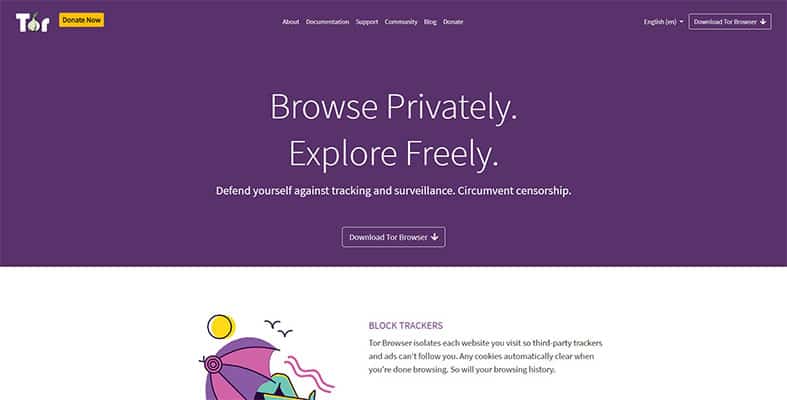
For those who do not have a budget for a paid VPN, Tor is the next best thing. VPN services and Tor have some things in common which deserve a mention.
Firstly, both re-route your internet traffic. In the case of Tor, your internet traffic will get rerouted multiple times through volunteer-run nodes.
But before you choose Tor as your primary tool for online privacy while torrenting, you should know a couple of things.
First, Tor always makes your internet connection very slow. And it doesn’t matter if you have a fast internet connection or not. That alone makes Tor slightly unsuitable for trouble-free torrenting. Generally, people use Tor for basic browsing and messaging.
Additionally, sometimes using Tor can be counterproductive since law enforcement agencies and ISPs may not appreciate a user suddenly using a privacy tool such as Tor. It may tip them off to start tracking you closely. Historically, hackers and other types of cybercriminals have used the Tor network for their nefarious activities, and that has damaged the reputation of Tor, at least in the eyes of law enforcement agencies.

Another tool for torrenters is PeerBlock. You should think of PeerBlock as a firewall that works from the desktop and keeps track of IP addresses that have been blacklisted. If an IP address belongs to a computer that tracks users on P2P file-sharing networks, then it makes it to the blacklist.
The only problem with using PeerBlock is that you have to pay if you want the latest updated list of blacklist IP addresses. Then there is the fact that no one can ensure if the blacklist of IP addresses actually contains all known copyright trolls, law enforcement agencies, and others.
Moreover, even if a copyright troll company is blocked, it can get a new IP address and then join the swarm to record all the IP addresses downloading torrents to get illegal material.
Conclusion
Now you know if torrenting is illegal or not, which actors are involved in catching torrenters and how to deal with them.
Use the comments section below to let us know your favorite tricks of torrenting safely.

